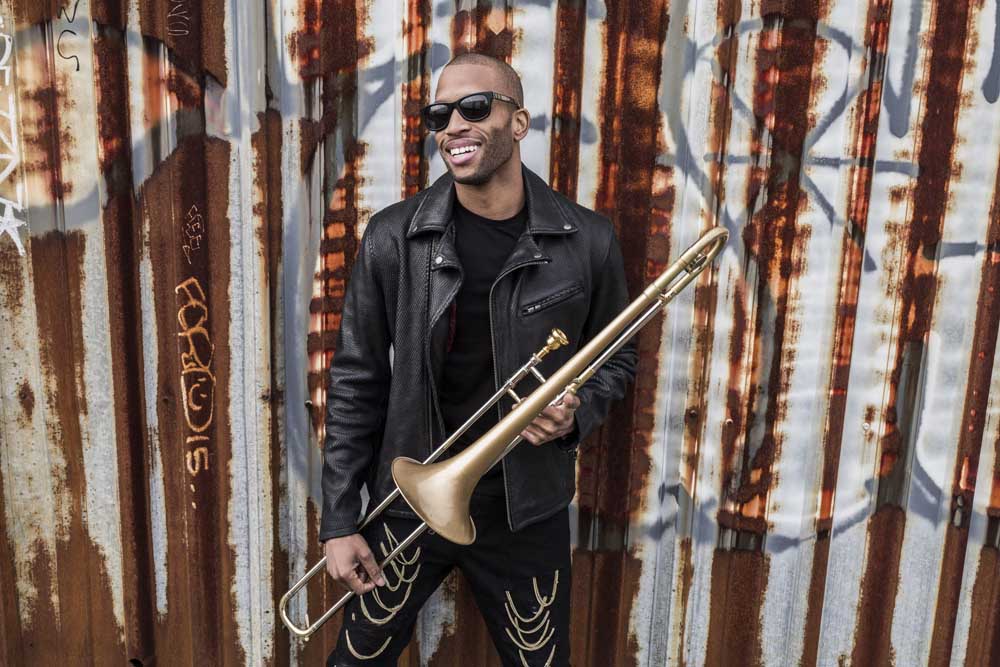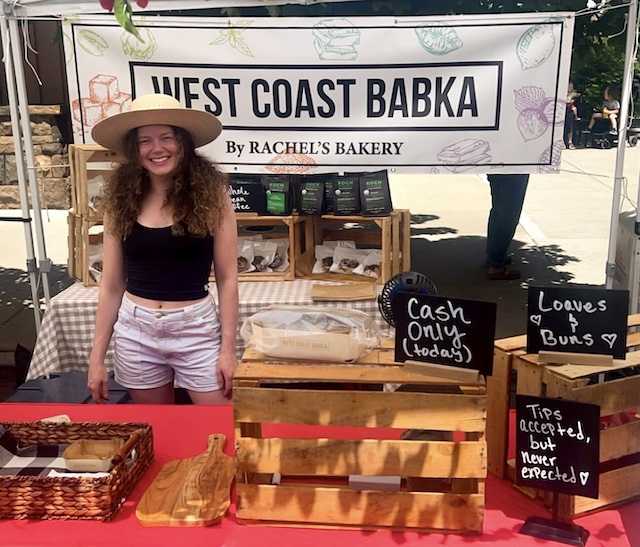Trombone Shorty brings a ‘Parking Lot Symphony’ to Bend
Published 12:00 am Thursday, July 4, 2019

- Trombone Shorty, who released his first album for Blue Note Records, "Parking Lot Symphony," in 2017, will perform with Orleans Avenue at Les Schwab Amphitheater on Friday. (Mathieu Bitton/Submitted photo)
With a stage name like Trombone Shorty, you would expect Troy Andrews to play a mean trombone.
The New Orleans artist has displayed as much during his long career as a bandleader and sideman for artists as varied as The Foo Fighters, Zac Brown Band and Rod Stewart, but his namesake instrument is just the tip of the iceberg. Over the years, the once child prodigy has demonstrated proficiency on drums, organ, trumpet, bass, guitar, tuba, keyboards and more with his longtime band, Orleans Avenue.
To say music came naturally to Andrews would be an understatement — he grew up surrounded by musicians in his family, playing in street parades and leading his own band as a child. But singing — a large part of Andrews’ funk/jazz/rock hybrid mix with Orleans Avenue — didn’t come as easily.
“Even when I had my band and we were younger, I would be scared to even introduce the band on the mic,” Andrews said recently from Grand Rapids, Michigan, before playing a sold-out show with Orleans Avenue. The band returns to Bend to play Les Schwab Amphitheater on Friday.
“But being in New Orleans, my brother James — he’s a trumpet player — he sang,” Andrews continued. “And my grandfather was Jessie Hill, who worked with Allen Toussaint and they had a big song, ‘Ooh Poo Pah Doo,’ back in the day — ’60s and all of that. … And I slowly started to try it and get more comfortable. And as I started to get more comfortable, I ran into a New Orleans legend, Deacon John (Moore), and he was like, ‘Man, you should really take singing serious.’ He said, ‘Take it from me: If you do that, you’ll be able to reach a lot more people and change some lives.’”
Andrews sounds more confident than ever, vocally and instrumentally, on 2017’s “Parking Lot Symphony,” his first album on Blue Note Records and the follow-up to 2013’s “Say That to Say This.” The album, which finds Andrews paying tribute to his New Orleans roots, features collaborations with Alex Ebert of Edward Sharpe & The Magnetic Zeros, Kevin Griffin of Better Than Ezra, and Meters guitarist Leo Nocentelli, among others.
Andrews said he and the band usually write and record fast in the studio to accommodate their busy touring schedule. (They are working on a follow-up album right now, he said). But Andrews slowed down on “Parking Lot Symphony.” He wrote and recorded demos on his own, playing all of the instruments himself, and then set them aside for a year.
“Being a multi-instrumentalist I hear certain parts,” Andrews said, “and sometimes when I’m working with the band or something, I can lose my idea because the drummer might be like, ‘Oh, we should do this,’ and I’m like, ‘Well let me get this foundation down and then we can add or change different things.’ Sometimes working with a lot of people when I have a structure in my mind, I can get lost because somebody took me in a different direction, which is a good thing, but I’d rather do that after I know what I wanted to put down.”
Nocentelli plays guitar on a cover of his Meters composition “It Ain’t No Use.” He chanced into playing on the updated version of the New Orleans funk classic, which also features a full choir.
“Actually he was recording downstairs in another room, and I was going to use the restroom and I saw him,” Andrews said. “I was like, ‘Man, I think we’re gonna do “Ain’t No Use” that you wrote on the record, and you’re here working in a different studio, so it’s only right that you come and be on the record.’ And it was good for me because I don’t really like to do covers on albums if I can’t get the artist or the writer to bless it for me.”
Andrews learned to play music alongside his family and New Orleans legends such as The Neville Brothers, who brought the young multi-instrumentalist on the road for one of his earliest tours as a teenager. But long before that he was a veteran of New Orleans second-line parades and a bandleader in his own right.
His first big break came when he joined Lenny Kravitz’s backing band after graduating high school. The budding trombonist, used to the loose improvisation of New Orleans jazz and swing, needed to stick to strict song arrangements for the first time. The experience changed his perspective “on everything,” he said.
“When I got back to New Orleans, I played a show with my band, and my ear wasn’t there anymore,” Andrews said. “We got in the studio — our practice room — and I gave my drummer a beat. I said, ‘Play this.’ I gave my bass player a part — ‘Play that.’ I gave my guitar player a part and I said, ‘Don’t move.’ So they stayed there and we played one groove for 20 minutes without adding anything to it, and that was a breakthrough moment for us to understand the show side of things and understand the discipline that I was just taught from Lenny. I was able to give that to the band and that opened up a whole world for us.”






